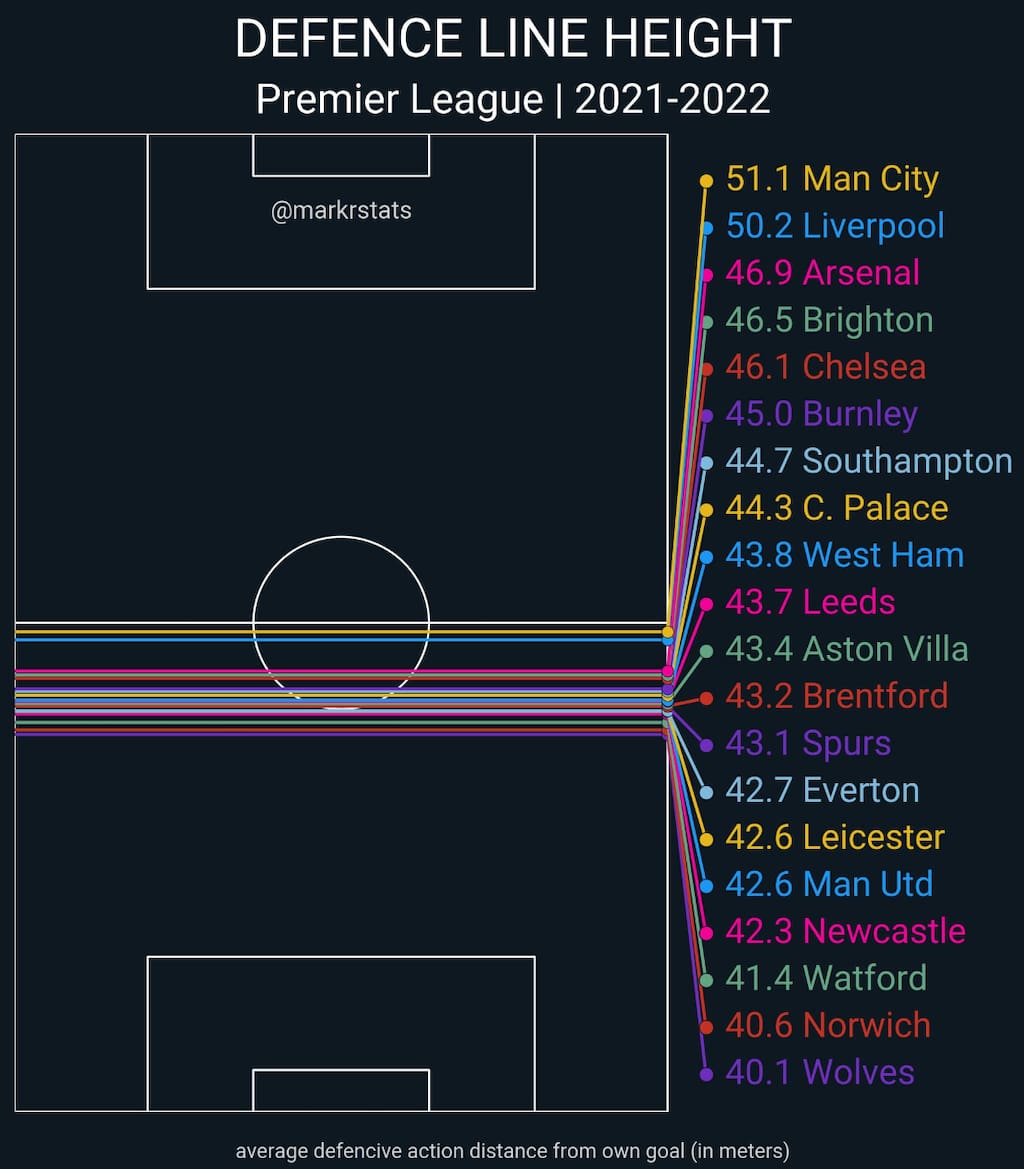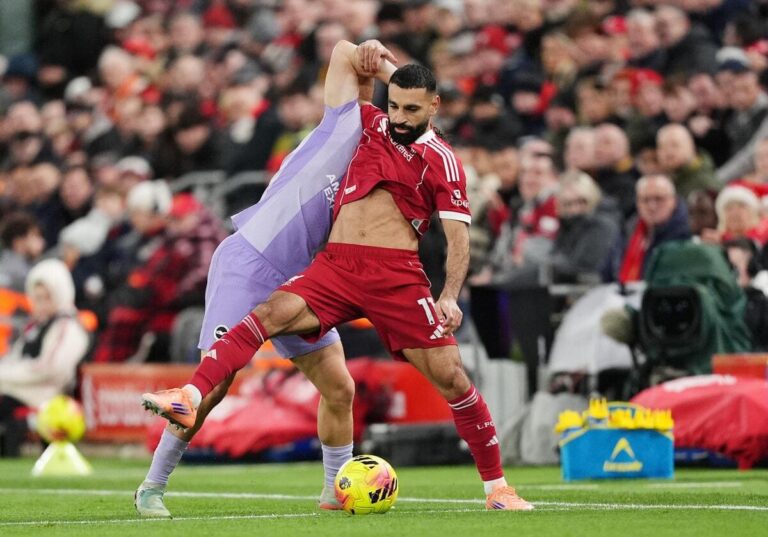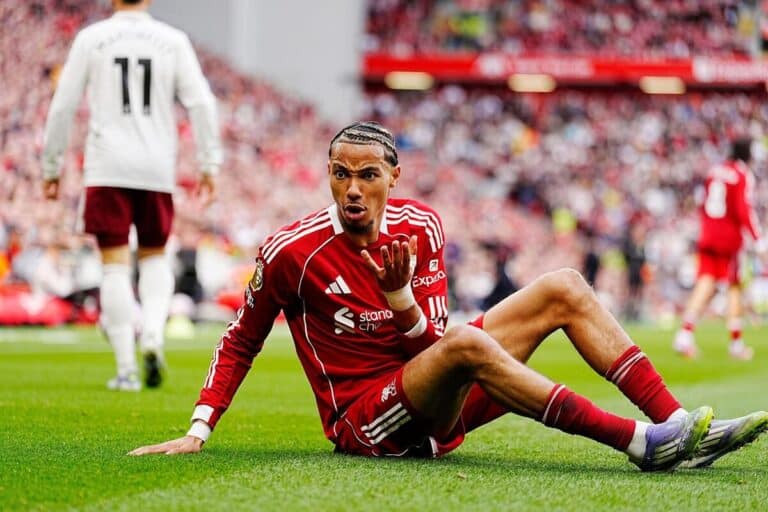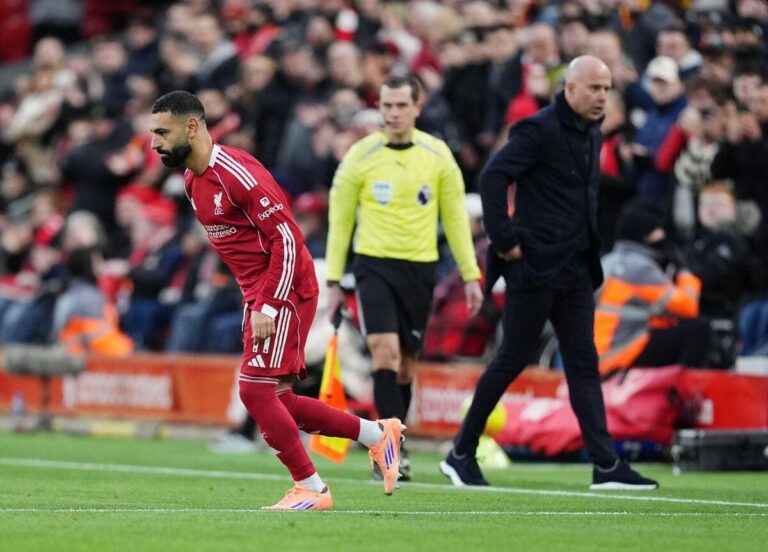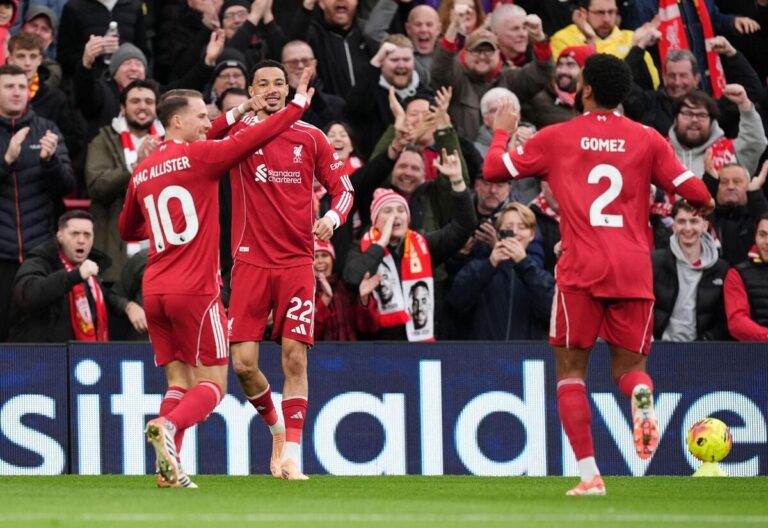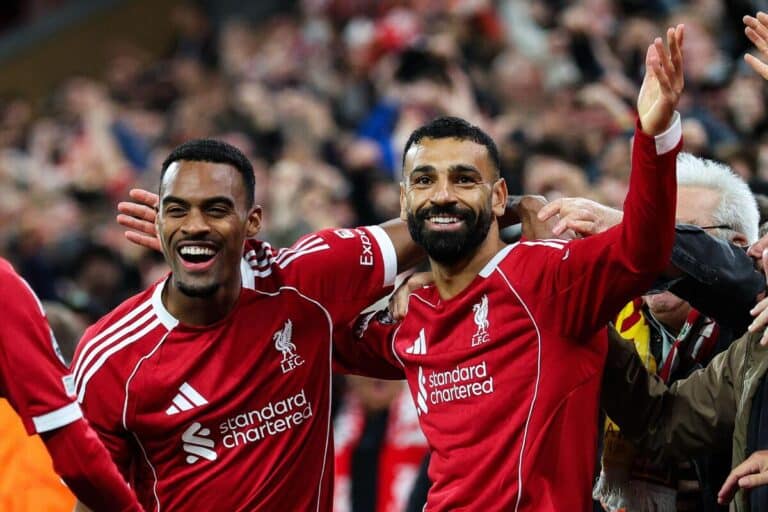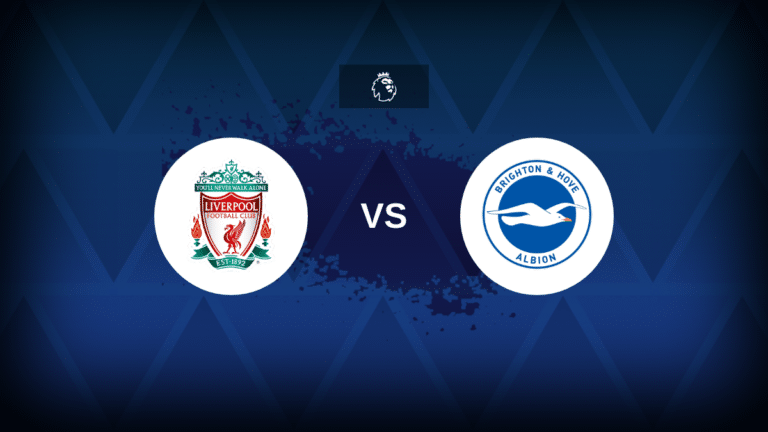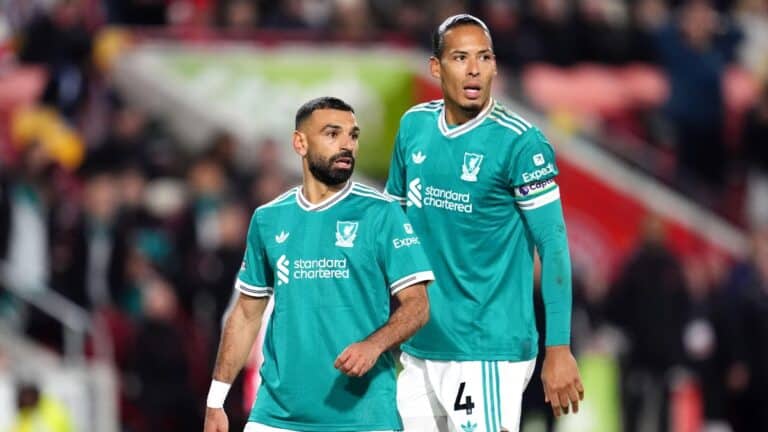The reasons behind Liverpool’s 2022-23 regression
Currently sat outside of the top four, the nature of Liverpool’s struggles this season is a culmination of various factors that could see them finish outside of the top four for the first time under Jürgen Klopp during a full campaign
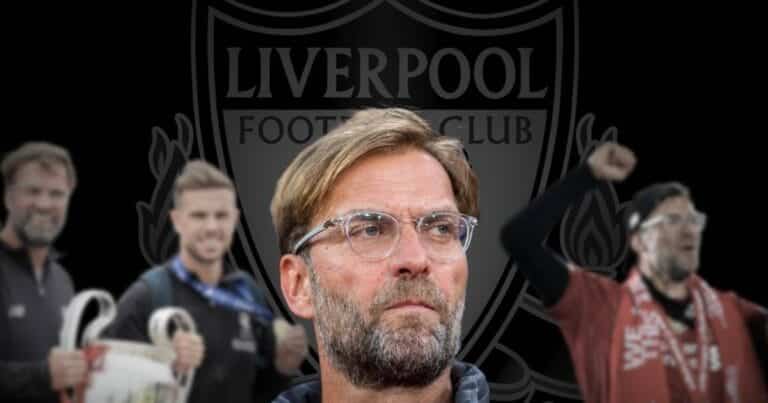
Liverpool. A footballing city and institution that is embedded in the very fabric of a greater national, and international, identity on the pitch.
As one of the biggest clubs in the world and a leading light for decades in the top flight of English football, the storied club has climbed to heights that few in the game, anywhere in the world, can hope to match. On the back of nineteen title-winning seasons dating back to a first triumph at the turn of the 20th century in 1900-01, the Reds have only bitter rivals Manchester United ahead of them in terms of league trophy hauls.
That tradition of success extends to cup competitions as well, both inside the English sphere of influence and on a broader continental landscape. Seventeen domestic cup honors between the FA Cup and League Cup add to their league success, but a further thirteen major European honors have seen Liverpool’s image remain dominant on the global stage for nearly five decades, with their six European Cup/UEFA Champions League wins level with German juggernaut Bayern Munich, with only Real Madrid and AC Milan capable of boasting more.
4️⃣0️⃣ years ago today…
Goals from Alan Kennedy and Ronnie Whelan as we won the League Cup for a third consecutive season 🏆 pic.twitter.com/HsnQ1uHE2k
— Liverpool FC (@LFC) March 26, 2023
Truly, Liverpool is a giant. Gargantuan, even. As an Arsenal fan, among a fanbase that supports a club that is credited with enormous stature in its own right, we still aspire to hit the level of recognition on the pitch that Merseyside had already achieved many moons ago.
But maybe it is fitting that I would be writing this today, across a 2022-23 Premier League season that has bore witness to a rapid decline perpetrated by that same Liverpool side that in recent years came as closer than anyone from unraveling Manchester City’s hegemonic grip on English football under the tenure of Pep Guardiola; a man who, for many, will go down as one of the greatest managers of all time.
During a season where Arsenal tops the Premier League in a stunningly unexpected fashion and now looks the favorite to secure its first league title in nearly twenty years, the discussion along the banks of the Mersey is centered around one dominating question; what has happened to Liverpool?
Transfer market misdirection
In what is now his seventh full season in the Anfield technical area, Klopp will go down as one of the top managerial names in club history on the back of his record since arriving in the wake of a monumental stint with Borussia Dortmund. Boasting a 60.1% win percentage, only Kenny Dalglish, William Edward Barclay, and John McKenna can call on a higher win rate. Additionally, Klopp comes in as the fourth-winningest manager in club history after bagging seven major honors while watching his teams achieve the fourth-most goals scored under any Reds headmaster.
📆 On this day in 2015, Jürgen Klopp became Liverpool FC manager.
He is the first manager in Premier League history to win the league and Champions League in his first 4️⃣ years in charge. 🏆
Legacy. Cemented. ✅ pic.twitter.com/juYBwP12gI
— GiveMeSport (@GiveMeSport) October 8, 2021
So much of that success came down to the Stuttgart native’s swashbuckling, all-action tactical schematic that preaches high-octane attacking football while supported by a press that could weather down any opponent they came up against. But the reality this season is that the signings across the last two seasons have not supported keeping that tactical remit alive and kicking, which has become painfully evident this season.
Dating back to the summer of 2021-22, Liverpool has desperately needed refreshment in the center of the park after watching key midfielder Georginio Wijnaldum depart for Paris Saint-Germain and, to date, have not replaced him via the market in conjunction with former key performers regressing massively this campaign. The same can be said for the sale of star man Sadio Mané to Bayern Munich this summer after it has become painfully evident that the Senegalese icon brought so much to Klopp’s system that has never been replicated by any player on the club’s books despite the spending the club has undertaken.
Across the last two seasons, Liverpool has almost exclusively focused on adding attacking talent to the senior team under Klopp, securing moves for Luis Díaz, Darwin Núñez, Cody Gakpo, and Fábio Carvalho for a combined ~£150m, with Ibrahima Konaté the only player brought into the senior side that did not feature in the forward line.
Immense faith has continued to be placed in a midfield core that has been at the center of everything the club had achieved on the pitch; one that has now been a shadow of itself this season and will undoubtedly force the club into the market this summer as links with Dortmund starlet Jude Bellingham remain constant. But is it too little too late?
Midfield regression
The need for a signing of the level of England midfield star Jude Bellingham is a real one. Not since the summer of 2020 has Liverpool spent any of its financial resources on a central player, when they prized Spanish international Thiago Alcântara from Bayern Munich after his contract reached the final year of its terms at the Allianz Arena.
Billed as one of the chief reasons behind Klopp’s success on Merseyside, both with their ability to control the ebb and flow of proceedings on the pitch but also as a main antagonist of Liverpool’s vaunted pressing scheme, the central triumvirate under Klopp’s command was at the core of their league win in 2019-20, as well as their Champions League win the prior campaign.
A domestic cup double last term also spoke to what the club has been capable to achieve under Klopp’s tenure, but the current season, featuring a monstrous level of regression in the engine room has left the German’s system painfully exposed as Liverpool has been run through time and again in a level not seen since before Klopp took the reigns in the dugout.
Is he Liverpool’s most underrated player? 🤔
Gini Wijnaldum will be missed at #LFC! 🇳🇱 pic.twitter.com/hcr9JFKisv
— Sky Sports Premier League (@SkySportsPL) June 7, 2021
Such has been the dip in quality and consistency that the emergence of young talent Stefan Bajčetić has distracted from a painful reality that the likes of James Milner, Jordan Henderson, Fabinho, Naby Keïta, and the aforementioned Thiago have all been well short of the standard required to make Liverpool appropriately tick.
In a combination of fitness, availability, consistency in performance, and a painful lack of goalscoring and creativity, the departure of Georginio Wijnaldum, a survey of a central core shows a huge deficiency. Overflowing with players that are all of a similar profile while lacking in the qualities necessary to sustain itself both in a pressing scheme as well as offering enough in the final third in comparison to the likes of Arsenal, Manchester City, and Manchester United, what was once Liverpool’s greatest strength has become its Achilles heel.
Dropping the defensive line
If there has been one defining characteristic of Jürgen Klopp as part of an overall tactical shift seen across German football, it has been his preference and subsequent reliance on a high-octane system of pressing. Not just reliant on a midfield or forward line that is capable of chipping into win-back possession higher up the pitch and immediately springing on the counter to catch your opponent out in the cold, playing a high defensive line is just as key as any other aspect of a system of deployment that has seen quite a bit of success in the modern game.
But that well-known high line has all but disappeared this season at Anfield, in conjunction with the club’s struggles in midfield and the loss of the irreplaceable Sadio Mané; a player who was a pressing machine on the left flank. Now, the Reds sit far deeper than ever before under the Klopp reign in the northwest of England, and the negative effects cannot be denied.
On average, Liverpool held the highest line of any Premier League club apart from domestic rivals Manchester City, and such was its effectiveness that the Reds remained second in the table while going on to win both domestic cups on offer. But this season, dating back to the earlier stages in October, Klopp’s choice to sit nearly twenty yards deeper against Arsenal while on their way to a 3-2 loss against Mikel Arteta’s Gunners was proof-positive that the club was operating on fumes on the pitch.
This has led to speculation that the Klopp brand of football had, for the third time now, hit the end of its shelf life after both previous stints at Borussia Dortmund and 1.FSV Mainz 05 saw his way of operating turned sour during its seventh full season. And that trend has continued across the bulk of the current league campaign as a direct link to issues mentioned above, while also being connected to another fundamental problem that has reared its ugly head; the regression of Trent Alexander-Arnold.
Trent Alexander-Arnold and a creative void
One of the hallmarks of why Liverpool has never turned toward the central spaces for creativity rests in the reality that Klopp has tuned his system to get the maximum output from wider areas. Through players the likes of Mohamed Salah, the aforementioned Sadio Mané, and Andrew Robertson, an endless procession of goals and assists have direct links to both flanks of Liverpool’s tactical deployment.
Trent Alexander-Arnold, whose performances this season have been under the microscope, has got his head down as he looks to get back to the level fans know he is capable of | ✍️ @_pauljoyce https://t.co/pMw4wAtu7F
— Times Sport (@TimesSport) March 29, 2023
Trent Alexander-Arnold was just as important as any of the wide players to hit new heights under Klopp, but his individual nosedive in form this term has also been felt in a manner that is quite possibly indescribable.
While TAA continues to create chances at a high rate, something remains missing for a player who has been at the forefront of the vaunted attacking play that Liverpool became known for. Between 2018-19 and 2021-22, the England international equaled or eclipsed twelve assists in three of four seasons, but this season, Trent has bagged just two despite remaining the undisputed first-choice right-back at Anfield.
Much of this has come down to the shift in the defensive line and when the Reds engage the press; the farther away from goal on average, the more Trent has to accomplish in any attacking sequence to get himself into a position to contribute on the scoresheet.
Some of what ails the Liverpool native surely boils down to the fact that the support from midfield necessary to allow him to bomb forward in the manner that he has built his career around has been lacking, and when that fact comes into wedlock with a deeper line, there just will not be the same output from an attacking fullback. As such, Liverpool has scored twenty fewer goals than Manchester City, a club they had gone toe-to-toe with in the attacking third in recent seasons.
Calling on the real Virgil van Dijk
A true captain thinks out loud and makes the situation on the pitch clear to everyone. But Virgil van Dijk is always stuck in between. He creates chaos which creates misunderstandings on the pitch. You should avoid this as a captain.
— Marco van Basten in criticism of Virgil van Dijk during the recent international break
We [Gullit & Van Basten] are positively criticizing Virgil van Dijk. He is part of the Team of the Year right? He got his nice award right? Then show yourself to us! If he’s still worth it? Everyone believes so, but I don’t.
— Ruud Gullit on Virgil van Dijk
Virgil van Dijk on Liverpool’s season 🇳🇱 #LFC
🗣️”These are difficult times at the club, also with ups and downs. I am very positive about the future and try to play my best game ever every game. We are not robots. Let’s not forget that. Maybe people sometimes forget that.” pic.twitter.com/byYPdQy4hJ
— Empire of the Kop (@empireofthekop) March 28, 2023
Arguably the biggest name on the pitch for Liverpool that has remained under the microscope at Anfield this season, key center-back, leadership figure, and Dutch international star Virgil van Dijk has come under intensive fire at a constant rate across the 2022-23 campaign while being regularly pointed as one of the leading contributors to the club’s regression on the pitch.
Widely viewed as one of the best central defenders across the entire Premier League era due to his meteoric rise in English football after his arrival in Southampton and subsequent move to Liverpool, the Breda-born defensive rock endeared himself to a global fanbase as a catalyst for success under Klopp since his January move during the 2017-18 season.
But that same calmness under pressure, dominant presence, expert ball-playing ability, and a player who rarely made mistakes in any phase of play has rarely been seen on a consistent basis this season, while some have begun to suggest that the Dutchman has been overrated to some degree.
No matter what side of the debate you fall on, Van Dijk’s status in the game has come on the back of merit, and merit alone, but it also cannot be denied that he is well off the standard seen from him in his previous four seasons on Merseyside.
Whether it is a one-off season that ails Van Dijk or the start of a larger period of regression that will see him fail to hit the same heights ever again, no one knows, but the downward trend this season is hardly just down to him, and him alone. Issues in midfield, particularly regarding the traditionally stalwart defensive cover provided by Fabinho, have also been sorely missed as the Brazilian also remains in the midst of performance-related problems.
Regardless of your personal view, it is an undeniable fact that the most successful teams boast spines that are on another level when stacked up against their contemporaries. It is what has made Manchester City so dominant, what is allowing Arsenal to likely go on to break their league duck, and saw Liverpool hit the pinnacle of success under Jürgen Klopp. If things are to change for the better moving forward, the real Virgil van Dijk surely must stand up.
